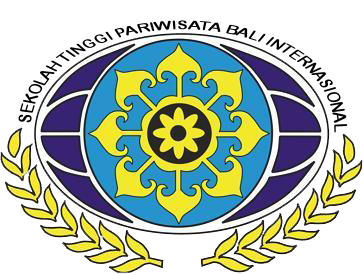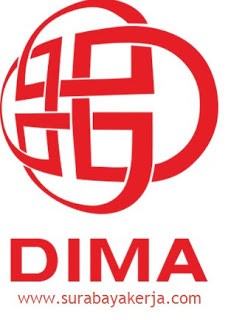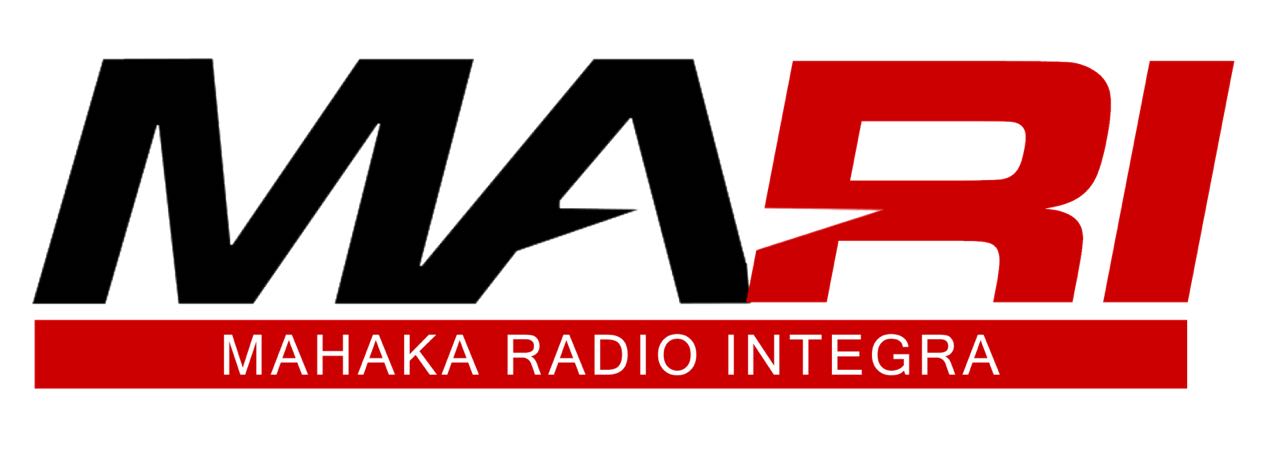PENGARUH REWARD DAN PUNISHMENT TERHADAP KINERJA KARYAWAN DENGAN MOTIVASI SEBAGAI VARIABEL INTERVENING (STUDI KASUS PADA PT. BANK CENTRAL ASIA TBK.)
Abstract
Keywords: Reward, Punishment, Motivation, Employees Performance, Management Control System.
Full Text:
PDFReferences
Abdillah, W., & Jogiyanto, H. M. (2009). Konsep Dan Aplikasi PLS (Partial Least Square) Untuk Penelitian Empiris. Yogyakarta: Badan Penerbit Fakultas Ekonomi Dan Bisnis UGM.
Aliyu, N. S., Jamil, C. M., & Mohamed, R. (2014). The Mediating Role of Management Control System in the Relationship between Corporate Governance and the Performance of Bailed-out Banks in Nigeria. Procedia - Social and Behavioral Sciences - ISSN : 1877-0428, 613-620.
Anwar, & Dunija, T. (2016). Pengaruh Sistem Reward dan Punishment Terhadap Peningkatan Disiplin Kerja Karyawan PT. Tunggal Perkasa Plantation-3 Kecamatan Sampoiniet Kabupaten Aceh Jaya. Serambi Akademica, Vol. IV, No. 1, ISSN : 2337 - 8085, 28-36.
Azwar, S. (2016). Metode Penelitian. Yogyakarta: Pustaka Pelajar.
Dachlan, U. (2014). Panduan Lengkap Structural Equation Modeling: Tingkat Dasar. Semarang: Lentera Ilmu.
Edirisooriyaa, W. A. (2014). Impact of Rewards on Employee Performance: With Special Reference to ElectriCo. International Conference on Management and Economics (pp. 311-318). Sri Lanka: Faculty of Management and Finance, University of Ruhuna.
Febrianti, S., Musadieq, M. A., & Prasetya, A. (2014). Pengaruh Reward dan Punishment Terhadap Motivasi Kerja Serta Dampaknya Terhadap Kinerja (Studi pada Karyawan PT. Panin Bank Tbk. Area Mikro Jombang). Jurnal Administrasi Bisnis (JAB) Vol. 12 No. 1, 1-9.
Ghozali, I. (2008). Structural Equation Model Metode Alternatif dengan Partial Least Square (SEM-PLS). Semarang: Badan Penerbit Universitas Diponegoro.
Ghozali, I., & Latan, H. (2015). Partial Least Squares : Konsep, Teknik dan Aplikasi Menggunakan SmartPLS 3.0 Edisi 2. Semarang: Badan Penerbit Universitas Diponegoro.
Hair, J., Hult, T., Ringle, C., & Sartstedt, M. (2013). A Primer on Partial Least Squares Structural Equation Modeling (PLS-SEM). Los Angeles: Sage.
Handoko, H. T. (2012). Manajemen Personalia dan Sumber Daya Manusia, Edisi Kedua. Yogyakarta: BPFE.
Haryono, S. (2017). Metode SEM Untuk Penelitian Manajemen: AMOS, LISREL, & PLS. Yogyakarta: PT. Luxima Metro Media.
Jamil, C. Z., & Mohamed, R. (2013). The Effect of Management Control System on Performance Measurement Systems at Small Medium Hotel in Malaysia. International Journal of Trade, Economics and Finance, 202-208.
Jogiyanto, H. M. (2015). Partial Least Square (PLS) : Alternatif Structural Equation Modeling (SEM) dalam Penelitian Bisnis. Yogyakarta: Andi.
Karami, A., Dolatabadi, H. R., & Rajaeepour, S. (2013). Analyzing the Effectiveness of Reward Management System on Employee Performance through the Mediating Role of Employee Motivation. International Journal of Academic Research in Business and Social Sciences. ISSN: 2222-6990, 327-338.
Mangkunegara, A. (2013). Manajemen Sumber Daya Manusia Perusahaan. Bandung: Remaja Rosdakarya.
Merchant, K. A., & Stede, W. A. (2014). Sistem Pengendalian Manajemen ( Pengukuran Kinerja, Evaluasi, dan Insentif ). Jakarta: Salemba Empat.
Merchant, K. A., & Stede, W. A. (2016). Sistem Pengendalian Manajemen Pengukuran Kinerja, Evaluasi, dan Insentif. Jakarta: Salemba Empat.
Nazir. (2014). Metode Penelitian . Bogor: Ghalia Indonesia.
Nnaji-Ihedinmah, N., & Egbunike, F. (2015). Effect of Rewards on Employee Performance in Organizations: A Study of Selected Commercial Banks in Awka Metropolis. European Journal of Business and Management.
Prabu, A. S., & Wijayanti, D. T. (2016). Pengaruh Penghargaan dan Motivasi Terhadap Kinerja Karyawan (Studi Pada Divisi Penjualan PT. United Motors Center Suzuki Ahmad Yani Surabaya). Jurnal Ekonomi Bisnis dan Kewirausahaan, Vol. 5, No. 2, 104-117.
Pratheepkanth, P. (2011). Capital Structure And Financial Performance: Evidence From Selected Business Companies In Colombo Stock Exchange Sri Lanka. Journal.
Purwanto, M. N. (2006). Ilmu Pendidikan Teoritis dan Praktis. Bandung: Remaja Rosdakarya.
Purwantono, I. (2014). Pengaruh Reward dan Punishment Terhadap Motivasi Kerja (Studi Kasus Pada Karyawan Kantor Pusat PT. Bakrie Telecom Tbk.). Jurnal Ilmiah Universitas Bakrie Vol.2 No.2.
Ratri, P. S., Abddurahman, D., & Irfani, A. (2017). Pengaruh Reward dan Punishment terhadap Kinerja Karyawan pada Divisi Corporate Services PT.Inti (Persero) Bandung. Prosiding Manajemen (pp. 961-966). Bandung: Universitas Islam Bandung.
Shields, J. (2016). Managing Employee Performance and Reward, Second Edition. Cambridge University Press.
Sholihin, M., & Ratmono, D. (2013). Analisis SEM-PLS dengan WarpPLS 3.0 untuk Hubungan Nonlinier dalam Penelitian Sosial dan Bisnis. Yogyakarta: CV ANDI OFFSET.
Suak, R., Adolfina, & Uhing, Y. (2017). Pengaruh Reward dan Punishment Terhadap Kinerja Karyawan Sutanraja Hotel Amurang. Jurnal EMBA Vol.5 No.2, 1050-1059.
Sugiyono. (2012). Metode Penelitian Bisnis. Bandung: Alfabeta.
Sugiyono. (2016). Metode Penelitian Kuantitatif, Kualitatif dan R&D. Bandung: Alfabeta.
Sujarweni, W. (2015). SPSS Untuk Penelitian. Yogyakarta: Pustaka Baru Press.
Sumarsan, T. (2013). Sistem Pengendalian Manajemen Konsep, Aplikasi dan Pengukuran Kinerja. Jakarta: Indeks Penerbit.
Sunarto, A., Rusilowati, U., & Ciptaningsih, E. M. (2017). Pengaruh Reward (Penghargaan), Punishment (Hukuman) dan Kepuasan Kerja Terhadap Kinerja Karyawan Pada PT. Asuransi Sinar Mas Jakarta Pusat. Prosiding Seminar Ilmiah Nasional (pp. 392-411). Pamulang: Universitas Pamulang.
Suryadilaga, R. M., Musadieq, M. A., & Nurtjahjono, G. E. (2016). Pengaruh Reward dan Punishment Terhadap Kinerja (Studi pada Karyawan PT Telkom Indonesia Witel Jatim Selatan Malang). Jurnal Administrasi Bisnis (JAB) Vol. 39 No.1, 156-163.
Suyadi, P. (2008). Manajemen Sumber Daya Manusia Kebijakan Kinerja Karyawan. Yogyakarta: BPFE.
Syahril, R. R., & Nurbiyati, T. (2016). Pengaruh Reward Ekstrinsik dan Intrinsik Terhadap Kinerja Dengan Kepuasan Kerja Sebagai Variabel Intervening. Jurnal Riset Manajemen Vol. 3, No. 1, 23-27.
Thompson, M. (2002). High Performance Work Organization in UK Aerospace, The Society of British Aerospace Companies, London. In M. Armstrong, A Handbook of Human Resources Management Practice, 11th ed. London: Kogan Page.
Widyanti, Y., & Sari, S. (2014). Pengaruh Komunikasi Internal, Reward dan Punisment Terhadap Motivasi Kerja Karyawan di BPR Nur Semesta Indah Kencong Kabupaten Jember. Jurnal Ekonomi dan Bisnis.
DOI: http://dx.doi.org/10.30813/ncci.v0i0.1310
Refbacks
- There are currently no refbacks.










